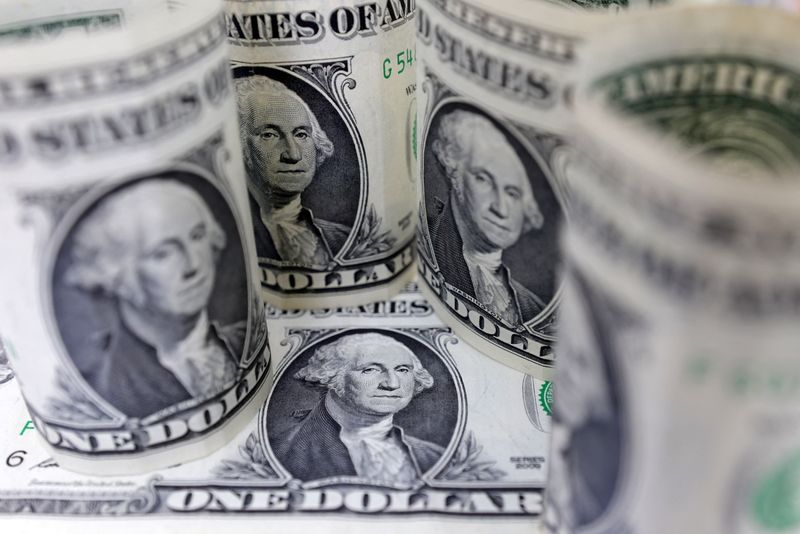
By Vidya Ranganathan
SINGAPORE (Reuters) -Japan’s yen fell to its lowest in nearly two months and other major currencies too were grappling with losses early on Monday as the dollar extended a rally sparked by Friday’s strong U.S. jobs data and an escalation in the Middle East conflict.
The yen fell marginally to hit 149.10 per dollar, its weakest level since Aug. 16, before paring losses to trade around 148.40. That came on top of a more than 4% decline last week, its biggest weekly percentage decline since early 2009.
The dollar’s gains followed a U.S. jobs report that showed the biggest jump in jobs in six months in September, a drop in the unemployment rate and solid wage rises, all pointing to a resilient economy and forcing markets to reduce pricing for Federal Reserve rate cuts.
“With rate cuts still being the default position, and when married to upbeat earnings expectations and China going hard on liquidity and fiscal, the equity bull case and the U.S. dollar get a shot in the arm,” said Chris Weston, head of research at Australian online broker Pepperstone.
“While geopolitical headlines and the possibility of an energy supply shock remain a continued threat to sentiment, those set long of risk haven’t heard anything significantly market moving through the weekend and head into the new trading week feeling pretty good about the prospect of further upside.”
In latest developments in the Middle East, Israel bombed Hezbollah targets in Lebanon and the Gaza Strip on Sunday ahead of the one-year anniversary of the Oct. 7 attacks that sparked its war. Israel’s defence minister also declared all options were open for retaliation against arch-enemy Iran.
Brent crude oil futures were 0.4% lower on Monday, but rose more than 8% last week, the largest weekly gain since early January 2023.
The dollar index measure against major peers was flat. It rose 0.5% on Friday to a seven-week high, logging more than 2% gains for the week, its biggest in two years. The euro stood at $1.0970, down 0.06%.
The yen’s underperformance has also to do with last week’s comments from new prime minister, Shigeru Ishiba, that stoked expectations that rate hikes in Japan are further away.
U.S. 10-year Treasury yields were at 3.9711%, just off their highest in two months. Yields dipped early last week when investors bought safe-haven Treasuries after Iran launched more than 180 missiles against Israel in escalating geopolitical tensions.
Market expectations have swung to the extreme for the Federal Reserve to do just a 25 bps cut in November, rather than 50 bps, following the jobs data. They now price in a 98% chance of a quarter point cut, up from 47% a week ago, and a 2% chance of no cut at all, according to CME’s FedWatch tool
“Dollar-yen will be staying around 145-149 in coming weeks due to lower expectations on an outsized cut by the Fed in November and dovish stance of Japan’s PM ahead of the general election on October 27 as long as the Middle East tensions remain subdued,” said Ryota Abe, economist at SMBC in Singapore.
Sterling was also flat around $1.3122, nursing last week’s 1.9% drop, its steepest fall since early 2023.

Bank of England Chief Economist Huw Pill said on Friday the central bank should move only gradually with cutting interest rates, a day after governor Andrew Bailey was quoted as saying the BoE might move more aggressively to lower borrowing costs.
The New Zealand dollar was up 0.1% at $0.6166, pausing in a week long decline ahead of a Reserve Bank of New Zealand (RBNZ) policy decision on Wednesday. Expectations are for a big half a percentage point cut, as the central bank continues with an easing it kicked off in August to trim rates from 15-year high levels.
This post is originally published on INVESTING.




